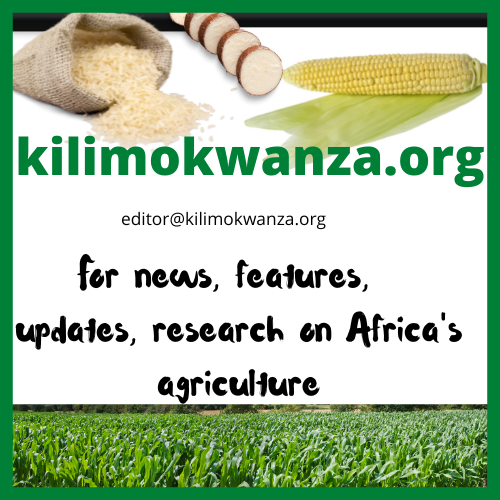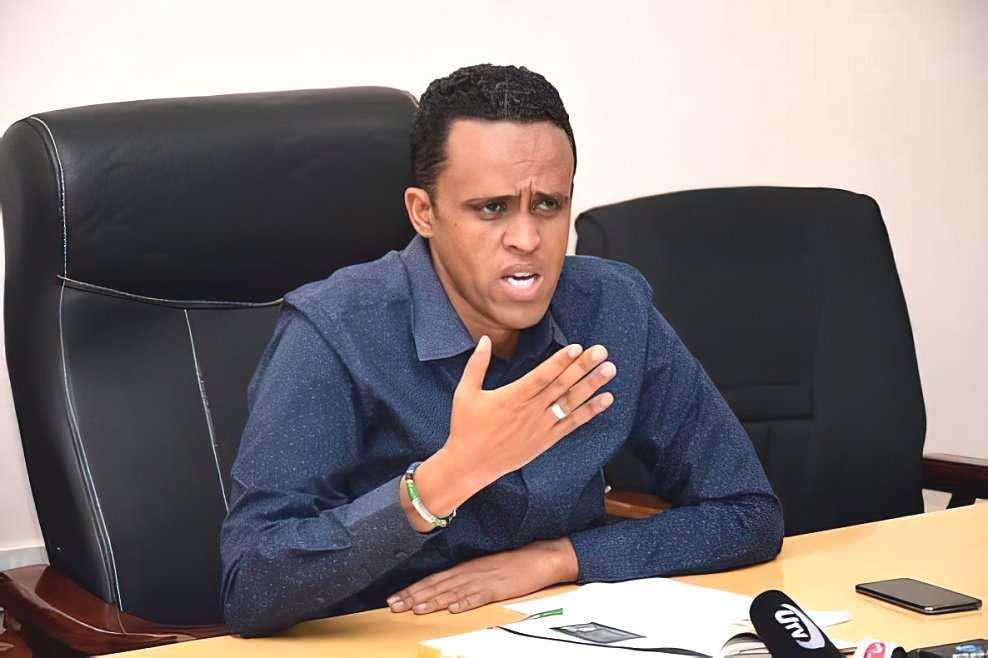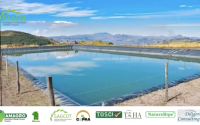Tanzania Southern Highlands: Africa’s potato paradise
By Angel Navuri
Iringa Region in Southern Highlands of Tanzania can easily provide all the potato needs for East Africa and a large part of Africa, if its full potential is realised.
At least, that is how, Sagcot Centre, sees it, after three year of implementing a pilot programme on potato seeds development funded by Alliance for a Green Revolution in Africa (AGRA).
Three years ago farmers in Iringa Region used to produce less than 5.2 tons per hectare compared to the potential of 30 tons per hectare. This has risen to 18 tonnes of potato per hectare, and the future looks bright.
About 50.000 ha potatoes are planted every season in region. If the average production at over 18 tons per acre is maintained, it would translate to over 900,000 tonnes every season, which is more that what is consumed nationwide per year.
This has been no mean feat. According to the Ministry of Agriculture, Livestock and Fisheries the potato partnership has been instrumental in increasing access to quality certified seed potatoes on a commercial scale.
“This has lead to over 2,500 small scale farmers in Njombe, Iringa and Mbeya regions to greatly improve potato yields per acreage,” notes the Minister for Agriculture, Livestock and Fisheries Hon. Charles Tizeba.
The potato seeds partnership addressed the lack of efficient seed provision, certification and delivery systems, to propel the farmers to increase .
“The seed potato development partnership has transformed potato farming in Kilolo, Mufindi, Njombe and Mbeya Rural districts,” he notes adding that, it goes along way to cement the government’s positioning of Southern Highlands zone as the most important potato production area in Tanzania.
Hon Tizeba says the government is gratified to see farmers , who were not used to paying for seed potatoes, are now willing to, instead of recycling their own seeds which often produces less and less.
Before the partnership, that involves companies that are multiplying breeder seeds, Tanzania had only 3 certified potato varieties, but today over 20 others are on way to being certified, as more partners have become willing to invest in potatoes, notes Mr Owekisha Kwigizile, SAGCOT Centre Potato specialist. AGRA initially funded introduction of 3 varieties – Tengeru, Sherekea, Asante and Meru, which initially were being distributed for free to farmers.
Mr Kwigizile, notes: “I am proud of the achievements made by the partnership. We will continue to provide training to farmers to increase their production,”
To him the introduction of the new potato seeds has been instrumental in increased production of the potatoes.
SAGCOT Centre CEO Mr. Geoffrey Israel Kirenga notes that researchers who have been visiting to learn from the project from different parts of the world, are usually flabbergasted with the region’s potential for potatoes.
“If we continue the momentum, if farmers start investing in storage facilities for the crop and if a number of potato processing industries underway are realised, Iringa and the surrounding areas, will become a potato paradise,” he notes. More work along the crop value chain is needed, he adds.
The partnership with AGRA, he says helped to train individual farmers to be able to multiply breeder seeds and demonstration farms were set up in about 59 villages.
Apart from potatoes farmers and AGRA other actors in the partnership were Usaid, Mtanga, Yara, Syngenta foundation, local government and Ari Uyole.
A beneficiary of the partnership, Pastor Michael Nyagawa of Lunguya village, Mtwango ward said apart from introducing new seed varieties SAGCOT provided training to farmers.
“This was crucial in helping us develop best practices for potato farming. We have changed our mindsets from traditional farming to commercial farming. We want to produce more and more so that we can conquer the market in Tanzania!” he noted.
Despite many challenges, he says the living standards of farmers whose main commercial crop is potato have improved thanks to increased incomes.
“Before SAGCOT came to Njombe, we used to cultivate many acres, but got meagre harvests. For instance, from one acre a farmer was getting between 20 to 25 sacks only but today we get up to 80 sacks per acre.
Nyagawa multiplies seeds for selling to other farmers.
A farmer from Maduma Village, Kichiwa ward in the same region, Sara Martin, said SAGCOT had contributed a lot in improving her standard of living since the introduction the new seed varieties.
She said all farmers who followed instructions and used the seeds distributed by SAGCOT have a success story to tell.
“I am happy that production of potatoes on my farm has increased from 60 sacks to 400 sacks per year. I am now capable of paying university fees for my daughter, thanks to SAGCOT and its partners,” Sara remarks.
fertilizers, pesticides and additional labour
The relatively high level of potato yields, short growing period and a available market has made farmers to take the crop more seriously. Some farmers grow it twice per year while others do it twice.
“At the moment in Tanzania, we only have only three legally recognized potato varieties, despite the crop being a major food crop across the country. SAGCOT and other partners like the Alliance for Green Revolution in Africa (AGRA) are working together to increase the number of improved varieties,” he said.
In 2015, Norwegian Ministry of Foreign Affairs awarded a $1.2 million grant to AGRA to fund a one-year inception phase of the Inclusive Green Growth of the Smallholder Agriculture (IGGSAS) Programme done within SAGCOT, with YARA International as key partner.
During the period, AGRA has put in place systems and structures (human capital and resources) and piloted a public private partnership (PPP) model as anticipated in the grant.
Following the success, AGRA launched a second, four-year implementation and up-scaling phase starting July 1, 2016 to June 30, 2020.
The initiative, with an overall goal of increasing incomes and food security of at least 30,000 farming households in Mbeya region of Tanzania by the year 2020, has its effects on a lot of farmers in the country.
The programme focused on strengthening at least six crop value chains to operate more efficiently while increasing access to inputs and knowledge of agronomic practices among smallholder farmers.
+++++++++
Grant
2015
The Norwegian Ministry of Foreign Affairs awarded a grant of NOK 9,000,000 (US$ 1.2M) to AGRA. This was to fund a one-year inception phase of the IGGSAS Programme in the SAGCOT with YARA.


